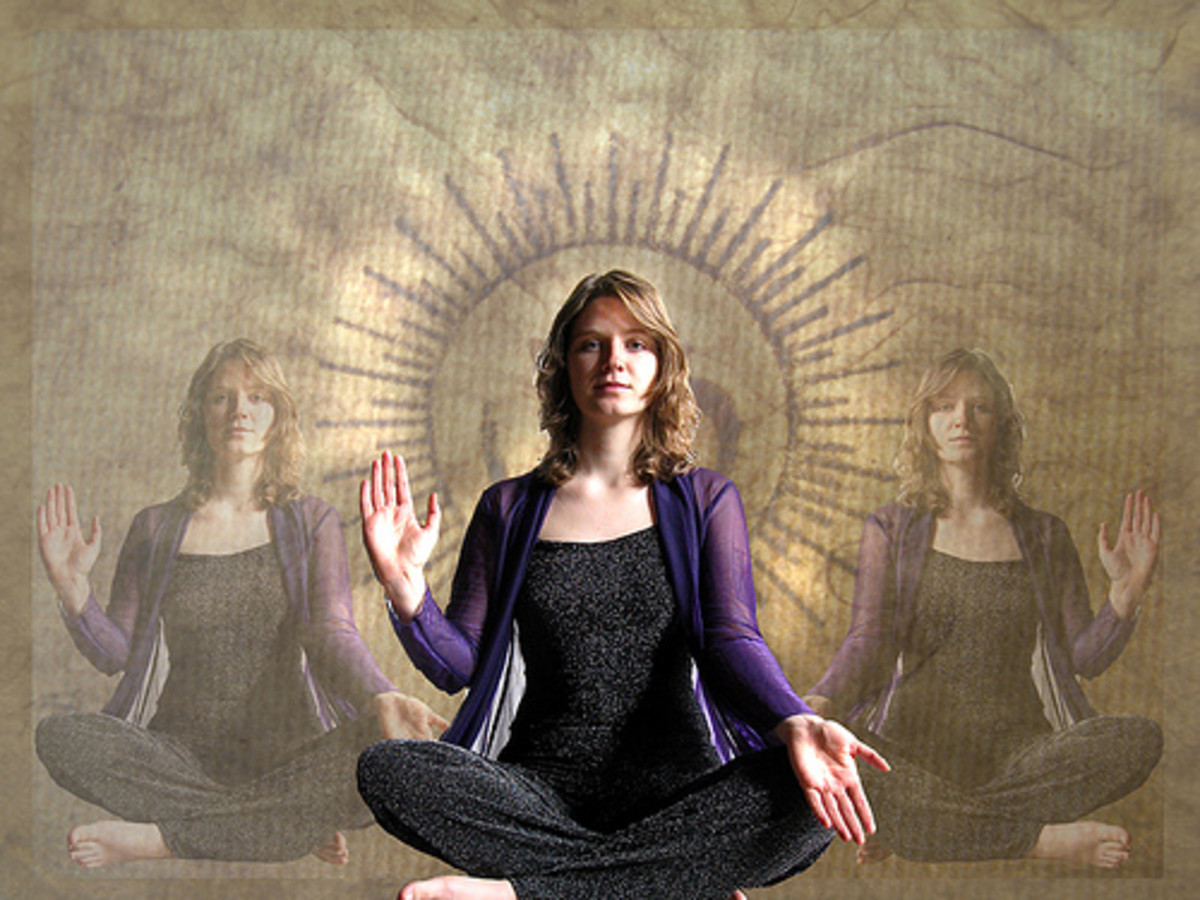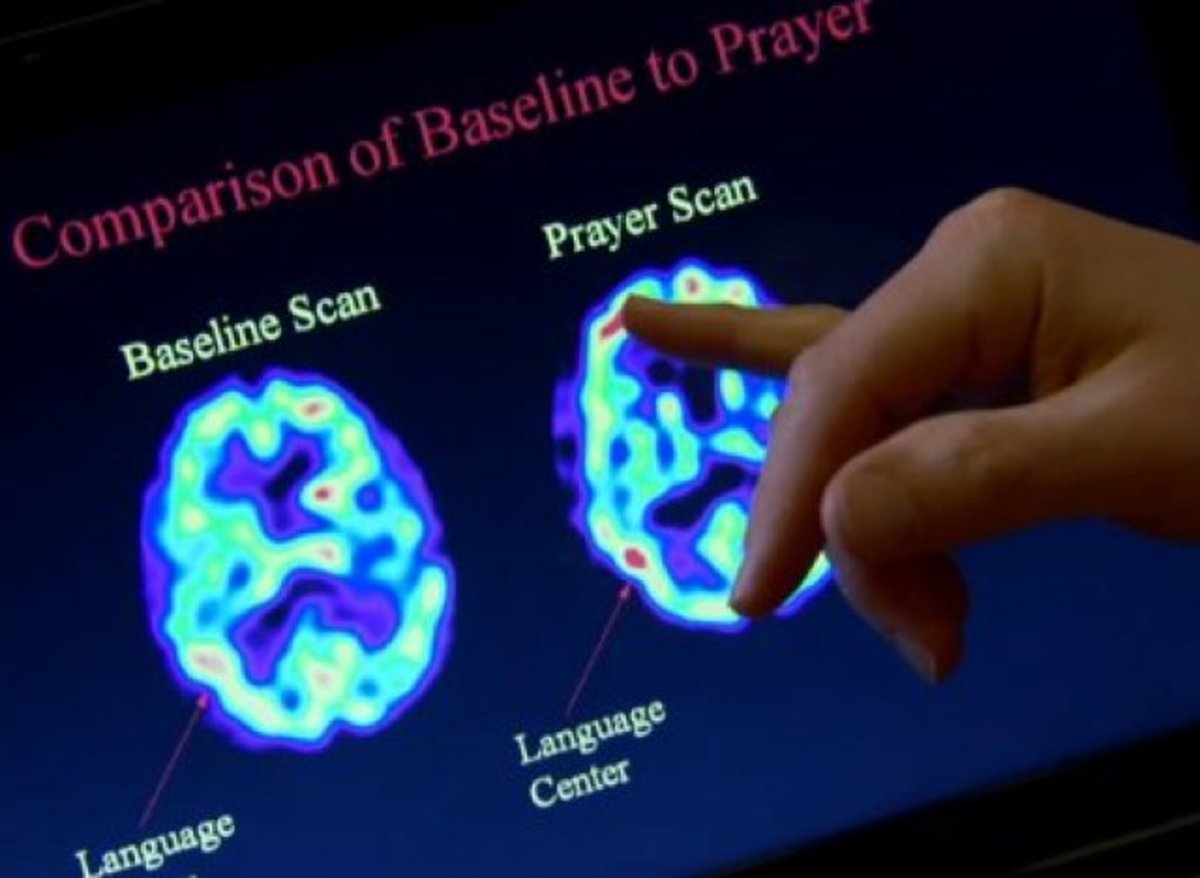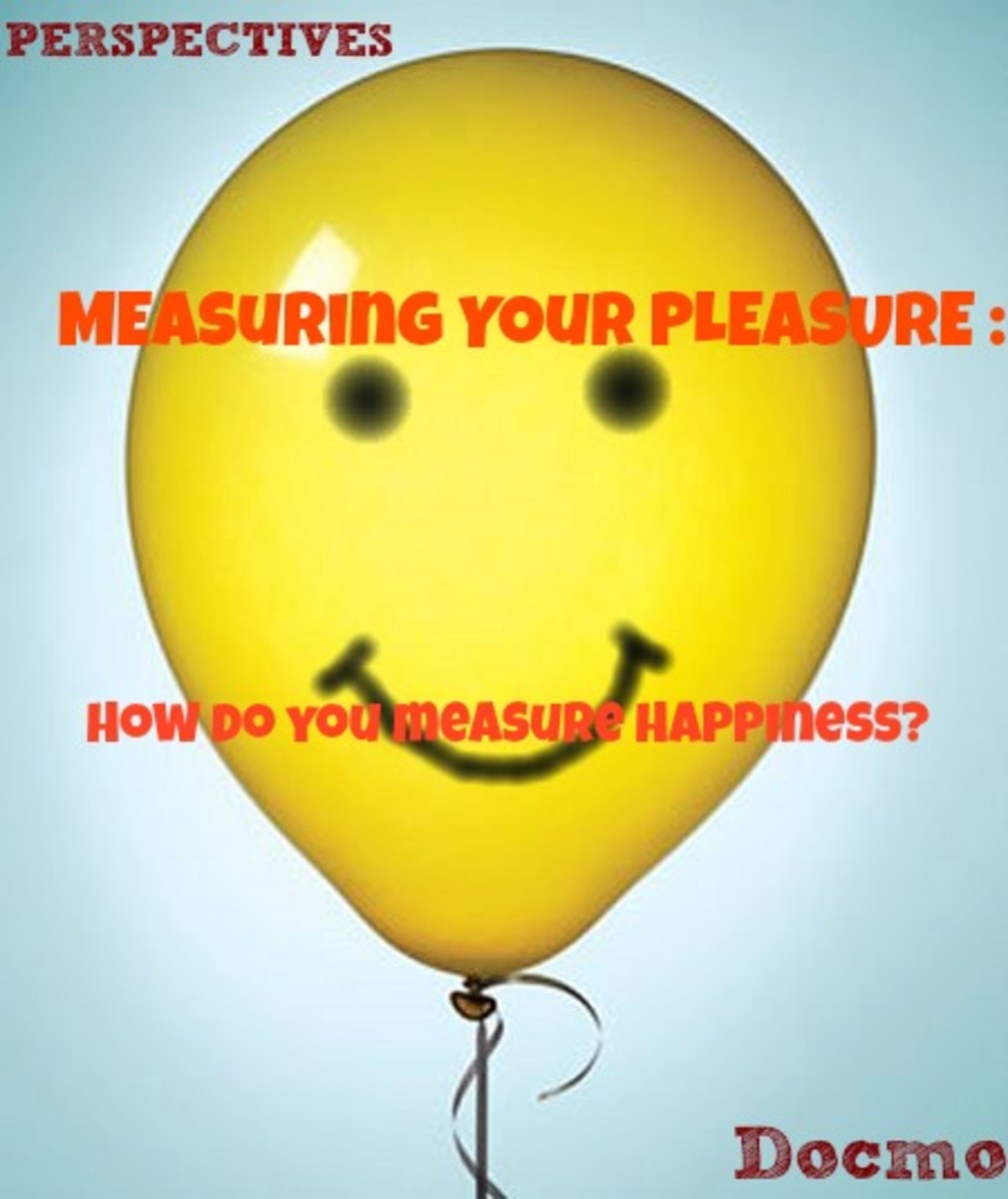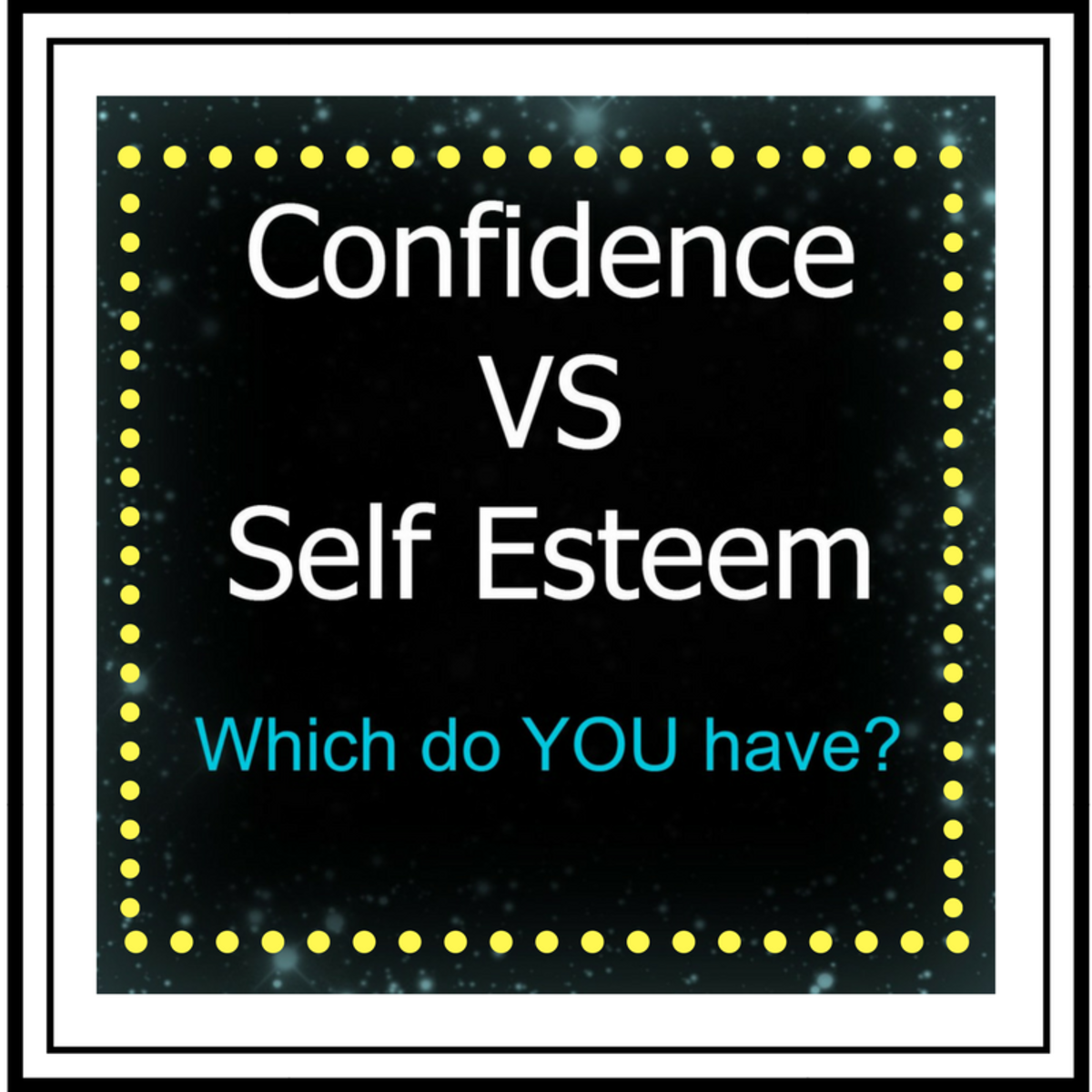Five Ways to Increases Happiness
Many people want to be happier. The field of positive psychology has expanded in the past few years. Now there are dozens of books out on the shelves of bookstores and hundreds of articles on the web explaining the science of happiness and how to increase your chances of achieving happiness.
What actually makes people happier? Experts have been trying to answer this question since forever. And there are many suggestions from many people.
There are many things that can make people happy. What works for one person may not work for another of course. Happiness is not an exact science.
Here are five ways to improve happiness -- all backed by references to experts in their fields. These are not ranked in any particular order because different people will put different weighs on each of these. And no doubt, each of these will affect different people differently.
Furthermore, happiness of a person is determined in part by genetics. There are people that are naturally more happy. Each person has a particular happiness level set-point. However, this natural happiness level is a range. But utilizing the keys of happiness, you can help nudge your happiness level to the top of that range.
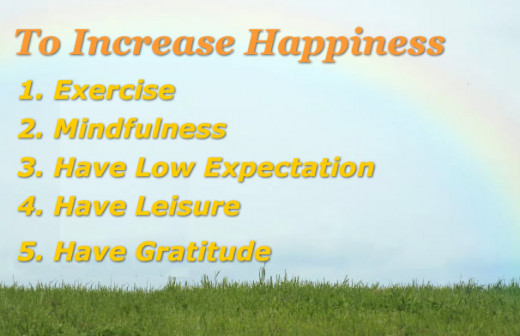
"The Happiness Project"
1. Exercise
If you do a web search the phrase "exercise depression", you will find that exercise may decrease depression. Understandably, if you are already depressed then exercise might be the last thing on your mind. So it would be better to get regular exercise in order to decrease your chance of getting depression in the first place.
Gretchen Rubin, who wrote The Happiness Project has article on her site which says "Exercise is a KEY to happiness" and provides 12 tips for getting regular exercise.
Exercise stimulates endorphin production, more so with strenuous resistance training and sprinting that get the body past the aerobic state and into the anaerobic state.[3]
Endorphin are endogenous opioid peptides that acts as neurotransmitters. They illicit feelings of well being and helps block pain.
Obviously stress can bring about unhappiness. Exercise relieves stress. The book Spark explains how ...
"By elevating restorative chemicals with a moderate workout, you're strengthening the circuits in your brain and tuning up the HPA [hypothalamus-pituitary-adrenal] axis so that it isn't as trigger-happy to future incidents of stress. ... Produced by the muscles of the heart itself when it's really pumping, ANP [atrial natriuretic peptide] travels through the bloodstream and into the brain, where it helps to further moderate the stress response and reduce noise in the brain. It's a potent part of a cascade of chemicals that relieve emotional stress and reduce anxiety." [p 254]
2. Mindfulness Meditation
Studies have shown that mindfulness may improve mood and reduce stress and pain as well.
On page 129 of the book Fully Present, it says ...
"The positive relationship between well-being and mindfulness ... is perhaps one of the most consistent findings in mindfulness research to date."
Mindfulness meditation can actually change the EEG patterns of the brain to improve attention. It increases theta wave coherence. The book says that ...
"meditation seems to create greater harmony in the brain."[p131]
What is mindfulness meditation? Jon Kabat-Zinn defines it as ...
"Paying attention, on-purpose, in the present moment and non-judgmentally”. [Book Mindfulness Beginners Reclaiming Present Moment]
Kabat-Zinn is an authority on mindfulness meditation and you can hear him talk about this in this video. Dr. Jon Kabat-Zinn developed the Mindfulness-Based Stress Reduction program and founded the Stress Reduction Clinic at the University of Massachusetts Medical Center. He has written the book "Full Catastrophe Living: Using the Wisdom of Your Body and Mind to Face Stress, Pain, and Illness" and is co-author of "The Mindful Way through Depression: Freeing Yourself from Chronic Unhappiness".
Read more about mindfulness in my separate article or try this simple breath counting technique.
In the documentary "Happy", Richard Davidson says that happiness is associated with the activation of the left pre-frontal cortex of the brain.
And guess what? Mindfulness practice helps shift toward the left prefrontal cortex activation. Reference linked here writes ...
"Studies have shown that meditation can have a positive effect on the left prefrontal cortex, which is associated with positive emotional states, and is thought to help in minimizing the emotional response to an unpleasant experience. 14 For example, in people who had completed an eight week course in mindfulness meditation, the left prefrontal cortex was found to be more active when compared with a control group. 16 Regular meditation has also been shown to increase the thickness of this region of the brain. This is particularly relevant for people who suffer from depression, as they tend to have lower levels of activity in the prefrontal cortex, and in fact, the severity of a person's depression has been linked to the degree to which activity has been reduced in that area."
Mind-wandering is associated with unhappiness. And is seems that mind-wandering is a cause of unhappiness. [reference]
TED Radio Hour had an entire episode about happiness.
In the book, Search Inside Yourself, -- which is a great book on the science of mindfulness meditation mixed with emotional intelligence and one that I recommend -- it writes ...
"There turns out to be a way to gauge happiness in the brain my measuring the relative activation of a certain part of your left prefrontal cortex versus your right prefrontal cortex. The stronger the relative left-tilt is measured ina person, the more that person reports positvie emotions, such as joy, enthusiasm, high energy, and so on."
PsychologyToday writes ...
"Through functional MRI (fMRI) technology, Davidson demonstrated that the left side of the frontal lobe – known as the left prefrontal cortex – is more active when people feel happy."
But others say that happiness occurs when the right brain is more activated and turn off the left brain. This also make sense when Jill Bolte Taylor had a stroke that disabled her left hemisphere and left her with euphoria.
Regardless of left or right brain, all that matters is the mindfulness training appears to increase activity in the brain in the area that is conducive to happiness.
3. Have Low Expectation
How we feel about situations and things depends on our expectation of those situations and things.
If we have high expectations of someone, it is harder for that someone to meet your expectations.
If you expect that your first job be the perfect job that you would stay in for the rest of your career, then we feel bad when it doesn't pan out.
If you have high expectations for a new car that you had just purchased, then you are seeking perfection and you will complain about every little minor imperfect thing that you find with the car. As you may know, complaining a lot is not conducive to happiness. We rarely see chronic complainers being happy.
Appreciate what you do have and do not complain or even contemplate what you do not have.
According to Barry Schwartz, author of Paradox of Choice ...
When we have lower expectation, then at least it is sometimes possible for an experience to exceed our expectations, and thereby making us happy.
And perhaps that may be one of the factors contributing to the fact that the rich may not always be happy.
4. Have enough leisure time
The authors of UltraPrevention, says to "Learn and practice the art of doing nothing" because ...
"It is a time to reset your internal rhythms, to integrate the experiences of the day, to be directionless. It is a place where creativity and happiness begin." [page 323]
The Organization for Economic Co-Operation and Development (OECD) did a multi-country study and found that...
"average country levels of life satisfaction are reasonably positively correlated to leisure time"[1]
where they defined leisure as "time spent free of obligation and necessity."[1] This excludes sleep as being leisure.
Tim Kasser and Kennon Sheldon writes of a similar concept known as "time affluence" -- I like that term. In their paper Time Affluence as a Path toward Personal Happiness and Ethical Business Practice they write ...
"Across four studies, results consistently showed that, even after controlling for material affluence, the experience of time affluence was positively related to subjective well-being." [from abstract]
5. Have Gratitude and Appreciation
In a National Public Radio broadcast[2], we hear of Harvard University professor Tal Ben-Shahar teaching happiness to students in his "Positive Psychology" class -- one of the most popular on campus.
On NPR's website, you will find 6 tips from Ben-Shahar on how to find happiness. One of them is to remember the mind-body connection, which means to get enough exercise, sleep, healthy eating, etc.[2]
If you want to learn more about the teachings of Ben-Shahar, you can get the DVD called "Happiness 101".
But another tip is to express gratitude. There is beauty all around us, but often times we do not see it nor appreciate it because we are lost in our own little world rushing here and there for some external reason or another. Mindfulness can pull us back to the present moment and appreciate the things around us right now right this moment.
It is like the old cliché, "stop and smell the roses".
One of those characteristic of happy people is having appreciation. Appreciation is just the externalization of gratitude. When people are appreciating something, they are fully present in the moment.
BusinessWeek article writes that ...
"benevolence and expressions of gratitude appear to be subtle but powerful ways to bring happiness into one's life and to extend it."
In the book, The Happy Minimalist, Peter Lawrence writes ...
"The happier people are those who do what they enjoy to earn money and use the money wisely to procure only the things they need. Others compromise their principles and health in their pursuit of money and consequently negate the happiness they were after."
We've only talk about a few ways to increase happiness. But there are other ways. Marci Shimoff's book "Happy for No Reason" has some other ways that are worth reading.
Conclusion
Hopefully, you will give it a try to improve these five aspects of increasing happiness:
- exercise
- mindfulness meditation
- lower your expectation
- have enough leisure time
- express gratitude and appreciation
Perhaps it will make the world a happier place. Note that in the five is not a mention of increasing money. But that is another topic which I have written about in another article titled Can Money Buy Happiness?
More References:
- [1] Special Focus: Measuring Leisure in OECD Countries
- [2] Finding Happiness in a Harvard Classroom : NPR
Students at Harvard University are flocking to a new class that they hope may provide hints to the secret to happiness. Psychology 1504, or "positive psychology," has become the most popular course on campus. It focuses on what makes people happy, ra - [3] TLC Family "Happiness, Exercise and Endorphins"
Exercise and endorphins have been linked to feelings of happiness. Learn about exercise and endorphins at HowStuffWorks.





